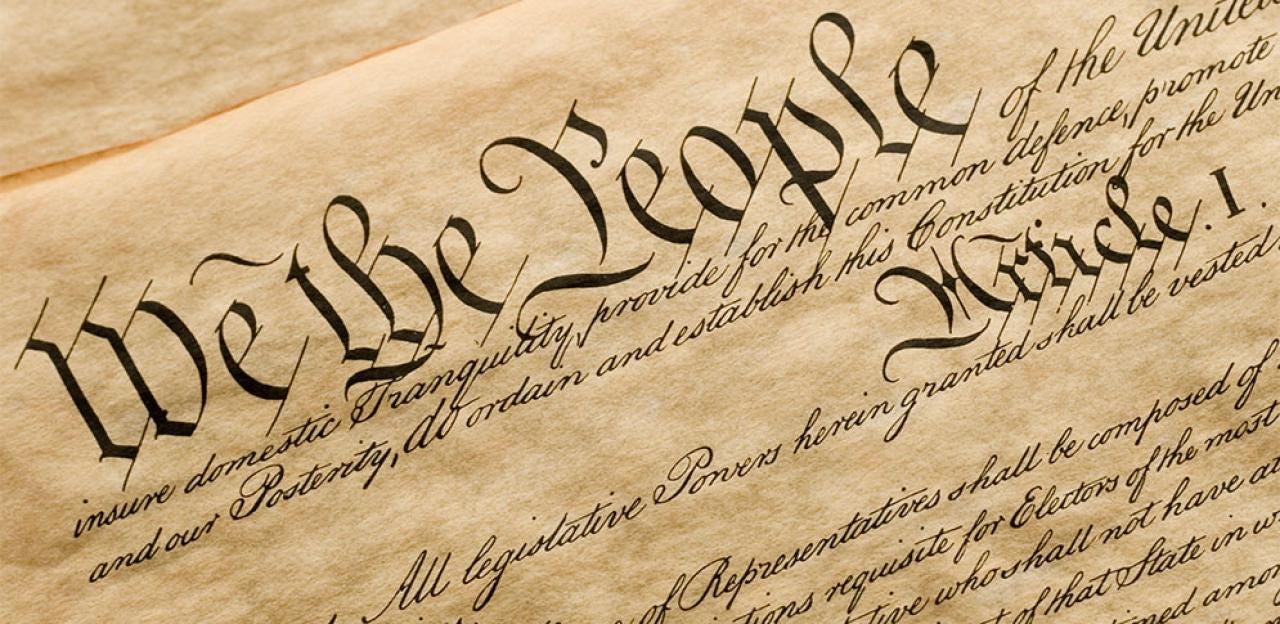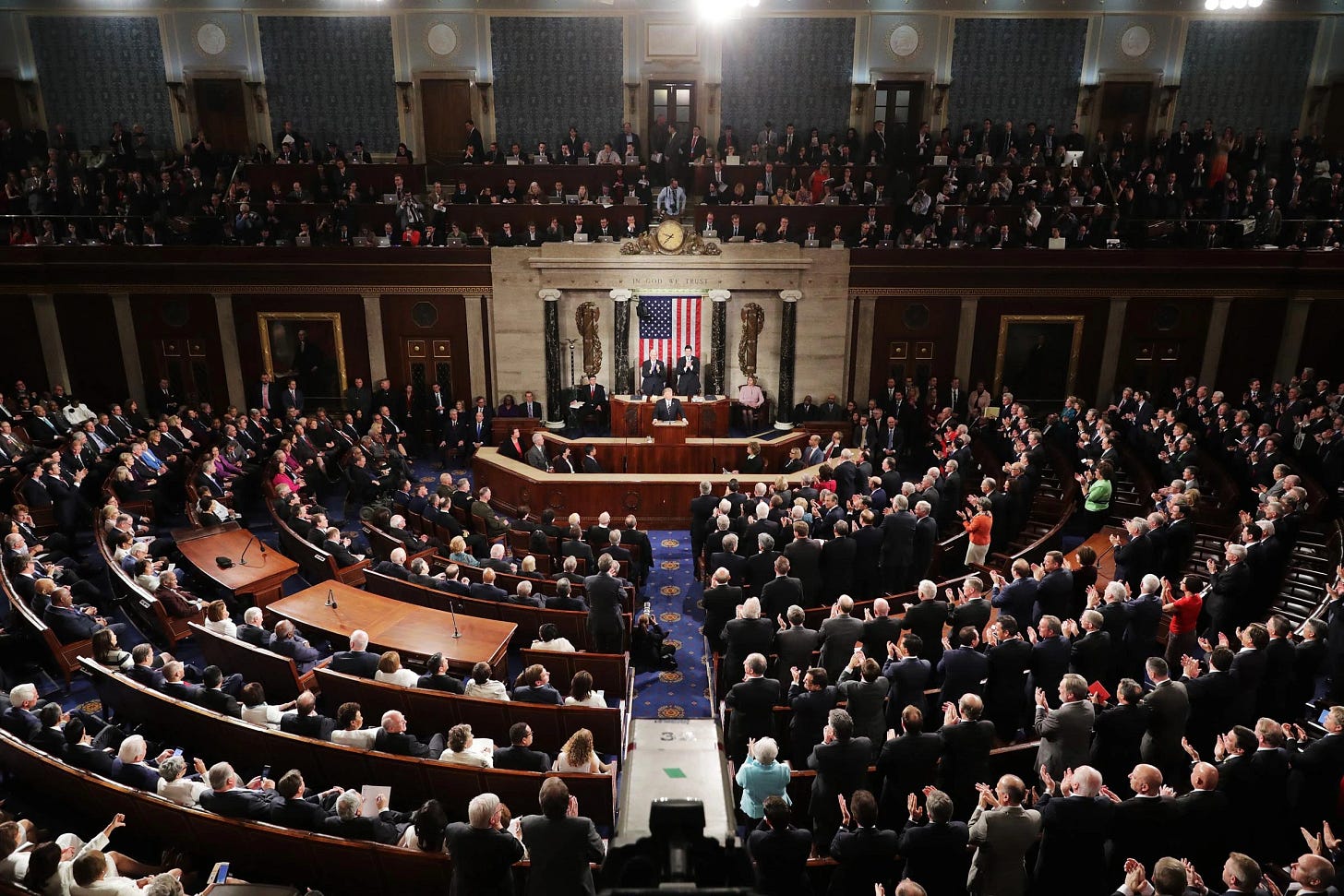Biden’s Debt Ceiling Dilemma
What part of the Constitution is President Biden going to violate: Article I, Article II, or the Fourteenth Amendment?
What part of the Constitution is President Biden going to violate: Article I, Article II, or the Fourteenth Amendment?
That’s the choice Biden faces if Congress doesn’t raise the debt ceiling in the next several weeks.
Most people understand that failure to lift the debt ceiling would be catastrophic for the U.S. economy; it would spark higher interest rates, a deep recession and financial market turmoil.
But less well understood is the fact that the debt ceiling law—which was created in 1917—puts the U.S. president in a constitutional bind.
As you might know, the decisions about what the federal government spends money on and how much it spends aren’t made by the president; they’re made by Congress in an annual budgetary process.
Congress decides what the federal government’s expenditures are and it decides how much to collect in taxes to fund those expenditures.
Any shortfall is made up with government borrowing.
So, when Congress passes its budget each year, it dictates how much money the federal government is going to collect in taxes and how much the federal government is going to spend.
Consequently, it also dictates how much money the federal government has to borrow. It’s as simple as X (spending) minus Y (tax revenues) equals Z (borrowings).
That makes the debt ceiling law unnecessary. Congress already controls the amount of government borrowing through the budget—there’s no need for a separate law limiting the total amount of debt.
But unnecessary or not, the debt ceiling isn’t a problem as long as Congress raises it when needed.
As long as it does that, the government can continue to borrow money to pay for the expenditures that Congress itself authorized through the bills that it passed.
If it doesn’t do that, well, then it becomes a big, convoluted problem.
Section 3 of Article II of the Constitution says that the president “shall take care that the laws be faithfully executed.”
That means that the President has a constitutional obligation to spend the money that Congress told him to spend in its spending bills.
But if the President doesn’t borrow money, then he can’t make the expenditures and he would be in violation of that part of the Constitution.
Given that, maybe the President should just ignore the debt ceiling law and keep borrowing money.
The only problem with that is he might then be in violation of Section 8 of Article I of the Constitution, which gives Congress the power to “borrow money on the credit of the United States.”
Congress could delegate that power to the President, but the President can’t take it for himself. Thus, ignoring the debt ceiling could be a violation of this part of the Constitution.
But that’s not the end of it.
If the president doesn’t borrow money and therefore can’t make payments on the national debt, that could put him in violation of Section 4 of the Fourteenth Amendment, which says that “the validity of the debt of the United States shall not be questioned.”
Some scholars have said that based on the 14th amendment, it’s unconstitutional for the U.S. government to default on its debt, and so the president and his Treasury department can just ignore the debt ceiling and keep borrowing money.
But if he does that, we’re right back to where we were, where he might be in violation Article 1 of the constitution.
This is a convoluted, no-win situation for the President and the country as well.
If the debt ceiling isn’t raised, Biden is going to have to make a choice that’s going to violate the Constitution one way or another.
This long, but really great research report talks about how ignoring the debt ceiling is probably the “least unconstitutional” option that the president has. Feel free to check that out if you want to learn more.



